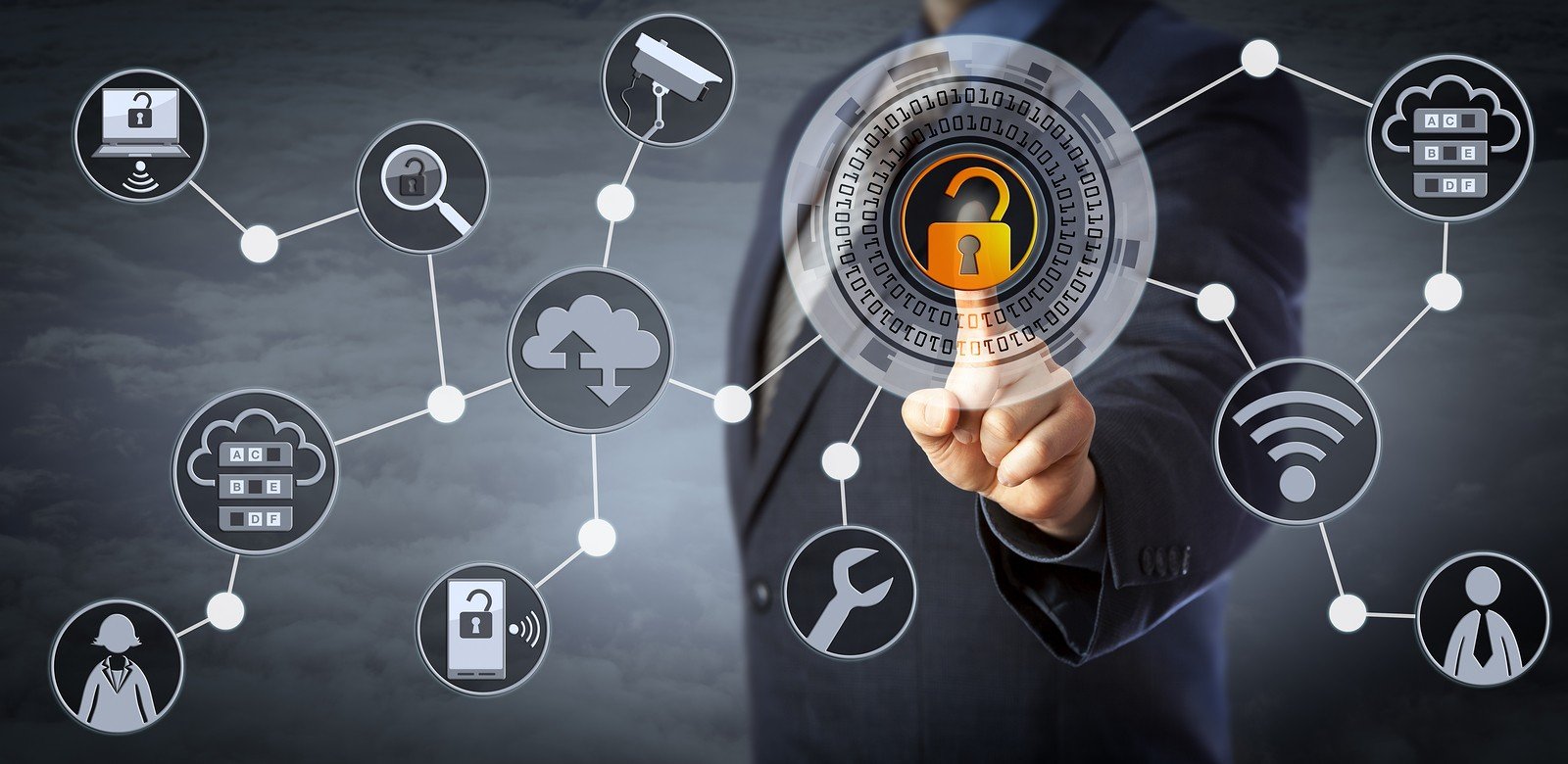In today’s rapidly evolving digital landscape, blockchain security audit services have become essential for any organization deploying blockchain technology or cryptocurrency projects. As decentralized finance (DeFi) protocols, smart contracts, and blockchain applications continue to gain mainstream adoption, the need for comprehensive security assessments has never been more critical. Professional blockchain security audit services help identify vulnerabilities, ensure compliance, and protect millions of dollars in digital assets from potential exploits and cyber attacks.
The blockchain industry has experienced numerous high-profile security breaches, resulting in annual losses exceeding billions of dollars. These incidents underscore the importance of implementing robust security measures through professional audit services. Whether you’re launching a new DeFi protocol, deploying smart contracts, or integrating blockchain technology into your existing infrastructure, comprehensive security auditing is not just recommended—it’s necessary for long-term success and user trust.
What Are Blockchain Security Audit Services?
Blockchain security audit services encompass a comprehensive evaluation of blockchain-based systems, smart contracts, and decentralized applications (dApps) to identify potential security vulnerabilities, coding errors, and compliance issues. These specialized services combine automated testing tools with manual code review performed by experienced security professionals who understand the unique challenges and attack vectors associated with blockchain technology.
Professional auditors examine various aspects of blockchain implementations, including smart contract logic, tokenomics, access controls, cryptographic implementations, and integration points with external systems. The audit process involves both static and dynamic analysis, penetration testing, and comprehensive documentation of findings with recommended remediation strategies.
The scope of these services extends beyond simple code review to include business logic validation, economic model analysis, and assessment of potential centralization risks. Auditors also evaluate the project’s adherence to industry best practices and relevant regulatory requirements, ensuring that the blockchain implementation meets both security and compliance standards.
Why Your Project Needs Professional Security Auditing
Protecting Against Financial Losses
The primary motivation for investing in blockchain security audit services is to protect financial assets. Smart contract vulnerabilities can lead to catastrophic losses, as demonstrated by numerous DeFi hacks where attackers exploited coding errors to drain millions of dollars from protocols. Professional audits identify these vulnerabilities before deployment, preventing potentially devastating financial losses.
Security breaches in blockchain projects not only affect the immediate stakeholders but can also destroy user confidence, damage brand reputation, and lead to regulatory scrutiny. The cost of a comprehensive security audit is minimal compared to the potential losses from a successful attack, making it one of the most cost-effective investments a blockchain project can make.
Regulatory Compliance and Legal Protection
As blockchain technology becomes more regulated, compliance with security standards and regulatory requirements becomes increasingly important. Professional audit services help ensure that your project meets relevant compliance standards, reducing legal risks and facilitating easier adoption by institutional investors and traditional financial institutions.
Many jurisdictions are implementing specific requirements for blockchain projects, particularly those handling user funds or personal data. Security audits provide documentation of due diligence efforts, which can be crucial in regulatory discussions and legal proceedings.
Key Components of Comprehensive Blockchain Security Audits

Smart Contract Code Review
Smart contract auditing forms the cornerstone of blockchain security audit services. Auditors examine the contract code line by line, looking for common vulnerabilities such as reentrancy attacks, integer overflow/underflow, access control issues, and logic errors. This process involves both automated scanning tools and manual review by experienced security professionals.
The code review process includes analysis of contract upgradability mechanisms, proxy patterns, and interaction with external contracts or oracles. Auditors also verify that the smart contracts implement the intended business logic correctly and efficiently, ensuring that gas optimization doesn’t compromise security.
Architecture and Design Assessment
Beyond individual smart contracts, comprehensive audits examine the overall system architecture and design patterns. This includes evaluating inter-contract communications, dependency management, and identifying potential single points of failure. Auditors assess whether the system design adheres to security best practices and identify architectural vulnerabilities that may not be apparent at the code level.
The assessment covers token economics, governance mechanisms, and upgrade procedures to ensure they align with security principles and project objectives. This holistic approach helps identify systemic risks that could affect the entire ecosystem.
Penetration Testing and Attack Simulation
Professional blockchain security audit services include penetration testing designed explicitly for blockchain environments. This involves simulating real-world attack scenarios to test the system’s resilience against various threat vectors. Auditors attempt to exploit identified vulnerabilities in controlled environments to understand their real-world impact.
The testing process covers both technical attacks against smart contracts and broader system attacks that might target infrastructure, user interfaces, or integration points. This comprehensive approach ensures that all potential attack surfaces are evaluated and secured.
Types of Blockchain Security Audit Services
DeFi Protocol Security Audits
Decentralized Finance protocols present unique security challenges due to their complex interactions with multiple smart contracts, oracles, and external protocols. Specialized DeFi security audits focus on liquidity risks, flash loan attack vectors, oracle manipulation, and yield farming vulnerabilities.
These audits examine tokenomics models, governance mechanisms, and economic incentives to ensure they create sustainable and secure ecosystems. Auditors also evaluate the protocol’s resilience against market manipulation and extreme market conditions.
NFT and Token Security Reviews
Non-fungible token (NFT) projects and custom token implementations require specialized security assessments. These audits focus on minting mechanisms, transfer functions, royalty implementations, and marketplace integrations. Auditors verify that token standards are correctly implemented and that metadata handling doesn’t introduce vulnerabilities.
The review process includes assessment of burning mechanisms, stakeholder functions, and any unique features that might introduce security risks. Special attention is paid to access controls and owner privileges that could affect token holders.
Cross-Chain Bridge Security Assessments
Cross-chain bridges are among the highest-risk components in the blockchain ecosystem, requiring specialized security expertise. These audits examine the mechanisms for asset locking, validation processes, and cross-chain communication protocols. Auditors evaluate the security of validator networks and consensus mechanisms used to facilitate cross-chain transfers.
The assessment includes analysis of slashing conditions, dispute resolution mechanisms, and emergency procedures for handling security incidents. Given the high-value targets that bridges represent, these audits require deep expertise in multiple blockchain protocols and their security models.
Wallet and Custody Solution Audits
Digital wallet and custody solutions require comprehensive security assessments covering both software and operational security. These audits examine key generation, storage mechanisms, transaction signing processes, and backup/recovery procedures. Auditors evaluate both hot and cold storage implementations, multi-signature schemes, and hardware security module integrations.
The assessment covers user interface security, API implementations, and integration with external services. Special attention is paid to private key management, secure communication protocols, and protection against various attack vectors targeting wallet software.
The Professional Audit Process Explained
Initial Project Assessment and Scoping
The audit process begins with a comprehensive project assessment to understand the scope, complexity, and specific security requirements of the project. Professional auditors work with project teams to define audit objectives, identify critical components, and establish timelines for the assessment process.
This phase involves reviewing project documentation, architecture diagrams, and preliminary code analysis to develop a customized audit strategy. Auditors also assess the project’s development practices, testing procedures, and deployment processes to identify potential areas for process improvement.
Automated Analysis and Tool-Based Scanning
Modern blockchain security audit services leverage sophisticated automated tools to identify common vulnerabilities and coding errors. These tools can quickly scan large codebases for known vulnerability patterns, helping auditors focus their manual efforts on the most critical areas.
Automated analysis includes static code analysis, dynamic testing, and formal verification, where applicable. However, experienced auditors understand that computerized tools are just the starting point—manual review by security experts is essential for identifying complex logic errors and business-specific vulnerabilities.
Manual Code Review and Expert Analysis
The core of professional audit services lies in manual code review performed by experienced blockchain security experts. This process involves line-by-line examination of smart contract code, looking for subtle vulnerabilities that automated tools might miss.
Expert analysis encompasses the evaluation of business logic implementation, the impact of gas optimization on security, and potential attack vectors specific to the project’s use case. Auditors also assess the code’s adherence to established security patterns and best practices within the blockchain development community.
Testing and Vulnerability Validation
Identified vulnerabilities undergo rigorous testing to validate their exploitability and assess their potential impact. This process involves creating proof-of-concept exploits in controlled environments to demonstrate the practical implications of security issues.
The validation process helps prioritize remediation efforts based on actual risk rather than theoretical concerns. Auditors provide detailed exploitation scenarios and impact assessments to help development teams understand the urgency of different security issues.
Comprehensive Reporting and Remediation Guidance
Professional audit services conclude with detailed reports that document all findings, provide clear remediation guidance, and establish timelines for addressing identified issues. These reports serve as valuable documentation for stakeholders, investors, and regulatory bodies.
The reporting process includes executive summaries for non-technical stakeholders, detailed technical findings for development teams, and recommended best practices for ongoing security maintenance. Follow-up reviews ensure that remediation efforts effectively address identified vulnerabilities.
Choosing the Right Security Audit Provider
Evaluating Auditor Credentials and Experience
Selecting the right blockchain security audit services provider requires careful evaluation of their credentials, experience, and track record. Look for auditors with extensive experience in blockchain security, relevant certifications, and a portfolio of successful audit engagements across various project types.
Consider the auditor’s specialization areas and ensure they have relevant experience with your specific blockchain platform, programming languages, and project type. Review their previous audit reports and client testimonials to assess the quality and thoroughness of their work.
Understanding Audit Methodologies and Standards
Professional audit providers should follow established methodologies and industry standards for blockchain security assessments. Inquire about their audit frameworks, testing procedures, and quality assurance processes to ensure comprehensive coverage of potential security issues.
The audit methodology should include both automated and manual testing components, with transparent processes for vulnerability classification, risk assessment, and remediation guidance. Look for providers who stay current with emerging threats and evolving best practices in blockchain security.
Assessing Cost vs. Value Considerations
While cost is always a consideration, the value provided by professional blockchain security audit services far exceeds the investment for most projects. Consider the potential costs of security breaches, regulatory issues, and lost user confidence when evaluating audit pricing.
Quality audit services serve as a form of insurance against catastrophic losses, providing valuable documentation for investors, partners, and regulators. Compare pricing across multiple providers while considering their experience, methodology, and the comprehensiveness of their services.
Common Vulnerabilities Found in Blockchain Audits
Smart Contract Logic Errors
Smart contract logic errors represent some of the most common and dangerous vulnerabilities identified during security audits. These errors can include incorrect mathematical calculations, flawed conditional statements, and improper handling of edge cases that attackers can exploit.
Common logic errors include incorrect token transfer mechanisms, flawed reward calculation algorithms, and improper handling of user inputs. These vulnerabilities often stem from the complexity of translating business requirements into secure smart contract code.
Access Control and Permission Issues
Access control vulnerabilities allow unauthorized users to execute privileged functions or access restricted data. These issues often arise from improper implementation of role-based access controls, missing function modifiers, or incorrect permission validation logic.
Auditors frequently identify issues with owner privileges, administrative functions, and multi-signature implementations that could allow malicious actors to compromise system security or steal user funds.
Reentrancy and Race Condition Attacks
Reentrancy attacks exploit the order of operations in brilliant contract execution to manipulate contract state or drain funds. These attacks have been responsible for some of the most significant losses in DeFi history, making them a critical focus area for security audits.
Race condition vulnerabilities can allow attackers to exploit timing-dependent operations or manipulate transaction ordering to their advantage. Professional auditors utilize specialized tools and techniques to identify these subtle yet critical vulnerabilities.
Oracle and External Dependency Risks
Many blockchain applications rely on external data sources (oracles) or interact with other smart contracts, creating potential vulnerabilities that could be exploited as attack vectors. Oracle manipulation attacks can allow attackers to profit from artificial price movements or exploit pricing discrepancies.
Auditors evaluate the security and reliability of external dependencies, assess the impact of oracle failures, and recommend strategies for mitigating risks associated with external data sources and contract interactions.
Best Practices for Ongoing Security Maintenance
Implementing Continuous Security Monitoring
Security auditing shouldn’t be a one-time activity—ongoing monitoring and regular assessments are essential for maintaining security as projects evolve. Implement continuous monitoring systems that can detect unusual activity, potential attacks, and system anomalies in real-time.
Establish procedures for regular security reviews, especially when deploying updates, integrating new features, or modifying critical system components. Many successful projects implement bug bounty programs to incentivize ongoing security research by the broader community.
Establishing Incident Response Procedures
Develop comprehensive incident response procedures that enable rapid response to security incidents or potential attacks. These procedures should include contact information for key stakeholders, communication protocols, and technical procedures for containing and mitigating security incidents.
Regular training and simulation exercises help ensure that team members can respond effectively during actual security incidents. Having pre-established relationships with security experts and audit providers can significantly reduce response times during critical situations.
Regular Security Updates and Patch Management
Establish processes for regularly updating dependencies, implementing security patches, and addressing newly discovered vulnerabilities. Stay informed about security advisories affecting your technology stack and prioritize updates that address critical security issues.
Document all security updates and maintain detailed records of system changes to facilitate future audits and security assessments. Regular communication with audit providers can help identify when additional security reviews might be necessary.
Industry Standards and Compliance Requirements
Regulatory Compliance Considerations
The blockchain industry faces increasing regulatory scrutiny, with many jurisdictions implementing specific security and compliance requirements for blockchain projects. Security audits help demonstrate compliance with these requirements and provide documentation of due diligence efforts.
Stay informed about regulatory developments in your target markets and ensure that audit processes address relevant compliance requirements. Work with audit providers who understand the regulatory landscape and can help navigate compliance challenges.
Insurance and Risk Management Integration
Many blockchain projects now seek insurance coverage for smart contract risks and security incidents. Professional security audits are often required for obtaining coverage and can significantly impact premium costs and coverage terms.
Integrate security auditing into broader risk management strategies and consider how audit findings might affect insurance requirements, investor relations, and partnership agreements. Regular audits can help maintain favorable insurance terms and demonstrate an ongoing commitment to security.
Cost Analysis and ROI of Security Audits
Understanding Audit Pricing Models

Blockchain security audit services typically use various pricing models, including fixed-price engagements, time-and-materials arrangements, and retainer-based relationships. Understanding these models helps you budget effectively and select the most suitable engagement structure for your project.
Factors affecting audit costs include project complexity, codebase size, timeline requirements, and the depth of testing required. While comprehensive audits require a significant investment, the cost is typically minimal compared to the potential losses from security breaches.
Calculating Return on Investment
The return on investment for security audits extends beyond direct cost savings from prevented attacks. Consider the value of enhanced user confidence, improved investor relations, easier regulatory compliance, and reduced insurance premiums when evaluating audit ROI.
Successful projects often find that security audits provide marketing benefits and competitive advantages, as users increasingly prefer platforms with documented security assessments. These indirect benefits can be substantial and should be included in ROI calculations.
Future Trends in Blockchain Security Auditing
Emerging Technologies and New Attack Vectors
The blockchain security landscape continues to evolve with the emergence of new technologies, platforms, and attack methods. Audit services must adapt to address emerging threats such as MEV attacks, cross-chain vulnerabilities, and risks associated with layer-2 scaling solutions.
Artificial intelligence and machine learning are being increasingly integrated into audit processes, helping to identify complex patterns and vulnerabilities that traditional analysis methods might miss. However, human expertise remains essential for understanding business logic and contextual security risks.
Standardization and Automation Improvements
The industry is moving toward greater standardization of audit processes and reporting formats, making it easier for projects to compare audit providers and for investors to evaluate security assessments. Standardized frameworks help ensure comprehensive coverage and consistent quality across different audit providers.
Automation improvements are making audits more efficient and cost-effective while maintaining thorough coverage of potential vulnerabilities. However, the most critical vulnerabilities often require human insight and cannot be fully automated.
Conclusion
Professional blockchain security audit services represent a critical investment for any organization deploying blockchain technology or cryptocurrency projects. As the industry continues to mature and face increasing regulatory scrutiny, comprehensive security auditing has become essential for protecting digital assets, maintaining user trust, and ensuring long-term project success.
The complex nature of blockchain systems, smart contracts, and decentralized applications requires specialized expertise that most development teams don’t possess internally. Professional audit services offer this expertise, providing the independent perspective necessary to identify vulnerabilities that internal teams might overlook.
While the cost of comprehensive security audits may seem significant, it pales in comparison to the potential losses from security breaches, regulatory issues, or damaged reputation. The blockchain industry has witnessed numerous examples of projects losing millions of dollars due to preventable security vulnerabilities that proper auditing would have identified.

